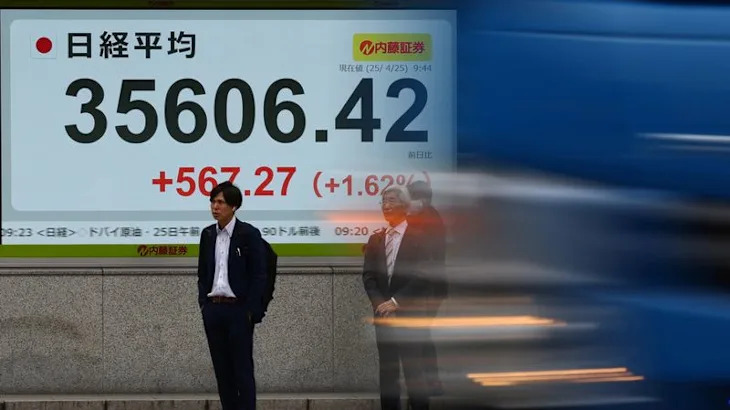At TOKEN2049, Yat Siu, co-founder and chairman of Animoca Brands, joined TheStreet Roundtable host Scott Melker to talk about the future of stablecoins — and why Hong Kong’s new approach could reshape adoption around the world.
“We're also moving into space. Part of it is Animoca Brands becoming more institutional. We have a joint venture with Standard Chartered... and HKT, the largest telco in the region, to launch a stablecoin,” Siu said.
The total stablecoin market capitalization stands at $244.99 billion, down 0.5% in the last 24 hours. Daily trading volume reached $78.05 billion, reflecting steady market activity. Stablecoins remain a key pillar of crypto liquidity and cross-border transactions.
What makes this stablecoin unique? It’s licensed by the Hong Kong Monetary Authority, which Siu noted “probably makes it the very first central bank issued.”
Siu explained the global importance of Hong Kong’s role. “Hong Kong has always been a financial gateway for China, both in and out... For instance, if you look at what we call Dim Sum bonds... Hong Kong basically does about two plus trillion dollars of renminbi a day.” He added, “A stablecoin issued from there is... a way to basically make Hong Kong remain a relevant financial centre.”
But it’s also about trust. While praising leaders like Tether and Circle, Siu said mass adoption will come when everyday users see banks behind the coins.
“Having the person who doesn't know much about crypto in the first place say, okay, I'm using a token that is backed by the dollar. Can I trust it? If it comes from a bank... your regular user... they're like, oh, okay, I can trust the bank.”
Melker pointed out that in the U.S., lawmakers may soon require stablecoin issuers to be banks. “There’s actually been some fear... legislation could specify that you have to be a bank to issue a stablecoin... we are a hundred percent heading to a future where we have Goldman Coin and BNY Mellon Coin and JP Morgan coin, which actually exists.”
Siu agreed and said geopolitics is a major factor. “The seventh largest T-bill buyer last year I think was Tether... If you think about dollar hegemonic money... how do you make sure it’s the currency of choice? I think stablecoins is the answer.”
Importantly, he clarified.
“It’s not a CBDC... The Hong dollar is actually backed by the US dollar... so in a way, the Hong Kong dollar was probably the OG stablecoin.”
Treasury chief slams Senate for blocking stablecoin bill
U.S. Treasury Secretary Scott Bessent criticized the Senate on Thursday for rejecting the GENIUS Act, a proposed stablecoin regulation bill, calling it a “missed opportunity” for the U.S. to lead in digital asset innovation.
“For stablecoins and other digital assets to thrive globally, the world needs American leadership,” Bessent posted on X. “The Senate missed an opportunity to provide that leadership today by failing to advance the GENIUS Act.” He described the bill as a “once-in-a-generation opportunity” to bolster dollar dominance and strengthen U.S. influence in financial technology, warning that without federal regulation, innovation could shift offshore.
The Senate voted 49-48 to block the bill, with Republicans Josh Hawley and Rand Paul siding with Democrats amid disputes over bill language and oversight provisions. Lawmakers expressed concern over anti-money laundering terms and foreign issuer restrictions. Tensions were heightened by President Trump’s deepening ties to crypto, including memecoin launches, high-priced fundraisers, and backing a DeFi project with its own stablecoin. Bessent concluded, “Senators who voted to stonewall U.S. ingenuity today face a simple choice: Either step up and lead or watch digital asset innovation move offshore.”





